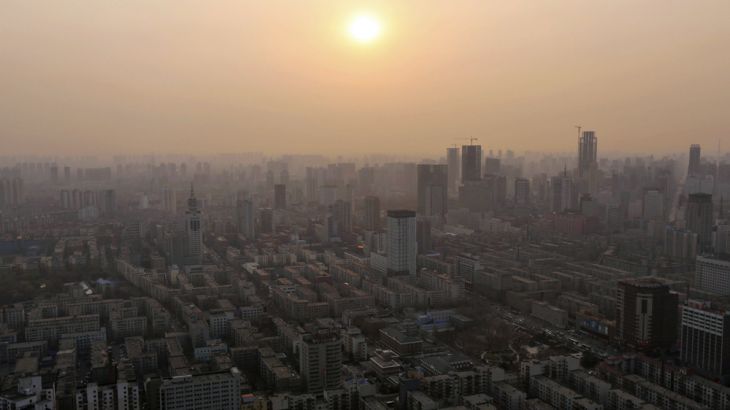China’s figures show economy slowing down
World’s number two economy expands only seven percent in first quarter, amounting to the slowest growth in six years.

China’s economic growth rate has fallen to a new low, expanding only seven percent year-on-year in the first quarter of this year, according to official data.
The figure announced by the National Bureau of Statistics on Wednesday was lower than the expansion of 7.3 percent in the final three months of last year, but exceeded the median forecast of 6.9 percent in an AFP survey of 15 economists.
Keep reading
list of 4 items‘We need you’: Solomon Islands’ support for US agency’s return revealed
Why are nations racing to buy weapons?
Parallel economy: How Russia is defying the West’s boycott
The result remained the worst for a single quarter since the first three months of 2009, when the economy grew 6.6 percent in the depths of the global financial crisis.
China, the world’s number two economy and a key driver of global growth, advanced only 7.4 percent last year, down from 7.7 percent in 2013 and its slowest annual rate since 3.8 percent in 1990.
Al Jazeera’s Adrian Brown, reporting from Bejing on Wednesday, said anywhere else in the world, these figures would cause celebration. However, the Chinese people, including this year’s 70 million university graduates, fear joblessness.
Much of China’s slowdown, caused by a decline in factory output, retail sales and investment in real estate, factories and other fixed assets, has been self-imposed.
Communist leaders are trying to steer the economy to more sustainable growth based on domestic consumption instead of trade and investment.
Property market slump
This year the central People’s Bank of China (PBoC) cut benchmark interest rates for the second time in three months, loosened bank reserve requirement ratios (RRR) to spur lending and took steps to boost the slumping property market.
However, these measures have caused an unexpectedly sharp downturn over the past years, prompting fears of job losses and social tension, and stepping up pressure for China’s leaders to keep the economy on track.
Li Keqiang, China’s premier and the top economic official, called on Tuesday for regulatory changes to nurture new industries, improve efficiency and generate jobs. But his statement made no mention of possible short-term stimulus measures.
It appears that China’s leadership is comfortable with weaker expansion, a development top officials say heralds a “new normal” of more stable, consumer-driven growth in line with an increasingly mature economy.
“We still are relying on a traditional growth engine, and that is declining,” Sheng Laiyun, spokesperson for the National Bureau of Statistics, said.
“We are in transition between the old and new growth models.”